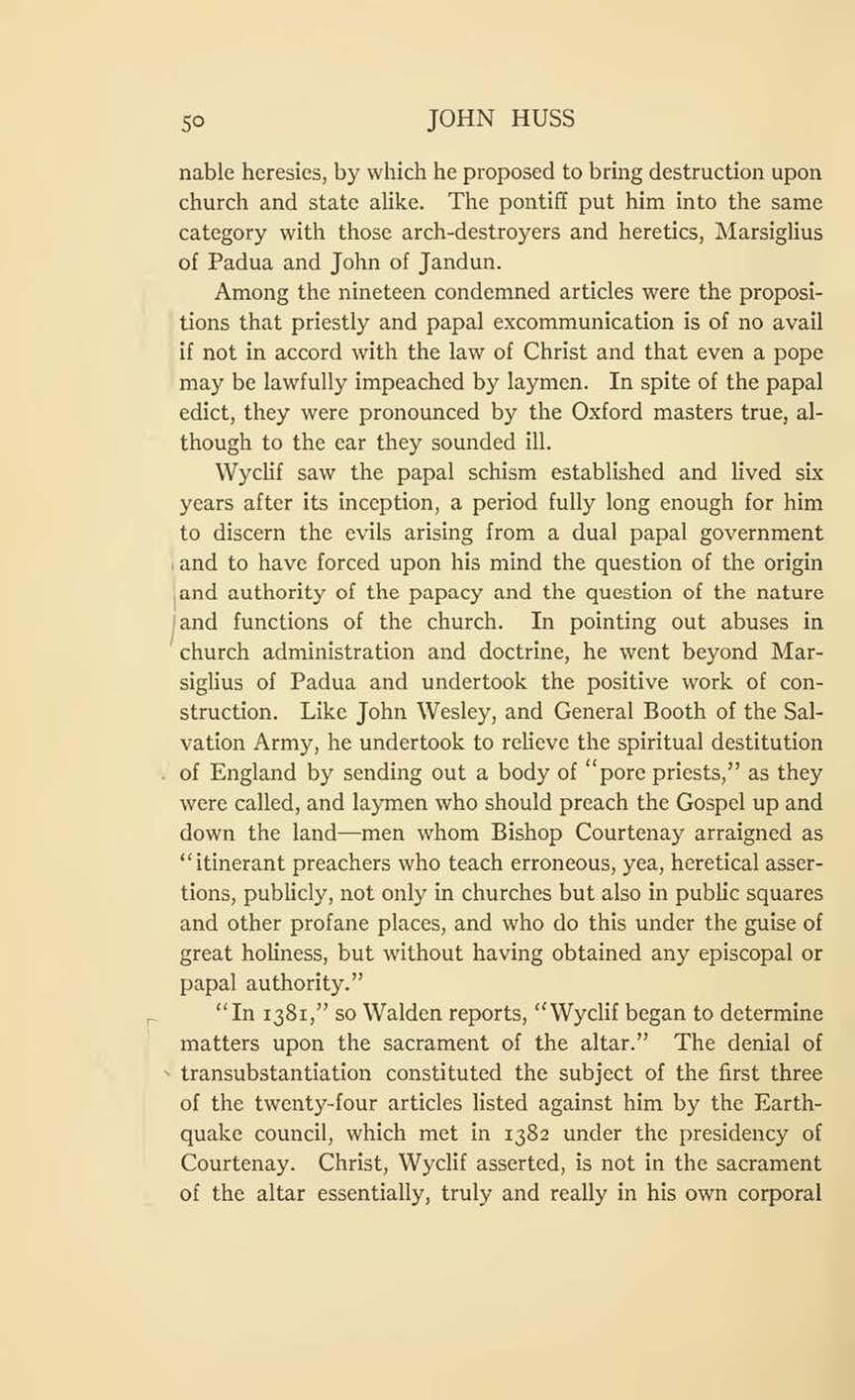nable heresies, by which he proposed to bring destruction upon church and state alike. The pontiff put him into the same category with those arch-destroyers and heretics, Marsiglius of Padua and John of Jandun.
Among the nineteen condemned articles were the propositions that priestly and papal excommunication is of no avail if not in accord with the law of Christ and that even a pope may be lawfully impeached by laymen. In spite of the papal edict, they were pronounced by the Oxford masters true, although to the car they sounded ill.
Wyclif saw the papal schism established and lived six years after its inception, a period fully long enough for him to discern the evils arising from a dual papal government and to have forced upon his mind the question of the origin and authority of the papacy and the question of the nature and functions of the church. In pointing out abuses in church administration and doctrine, he went beyond Marsiglius of Padua and undertook the positive work of construction. Like John Wesley, and General Booth of the Salvation Army, he undertook to relieve the spiritual destitution of England by sending out a body of “pore priests,” as they were called, and laymen who should preach the Gospel up and down the land—men whom Bishop Courtenay arraigned as “itinerant preachers who teach erroneous, yea, heretical assertions, publicly, not only in churches but also in public squares and other profane places, and who do this under the guise of great holiness, but without having obtained any episcopal or papal authority.”
“In 1381,” so Walden reports, “Wyclif began to determine matters upon the sacrament of the altar.” The denial of transubstantiation constituted the subject of the first three of the twenty-four articles listed against him by the Earthquake council, which met in 1382 under the presidency of Courtenay. Christ, Wyclif asserted, is not in the sacrament of the altar essentially, truly and really in his own corporal
